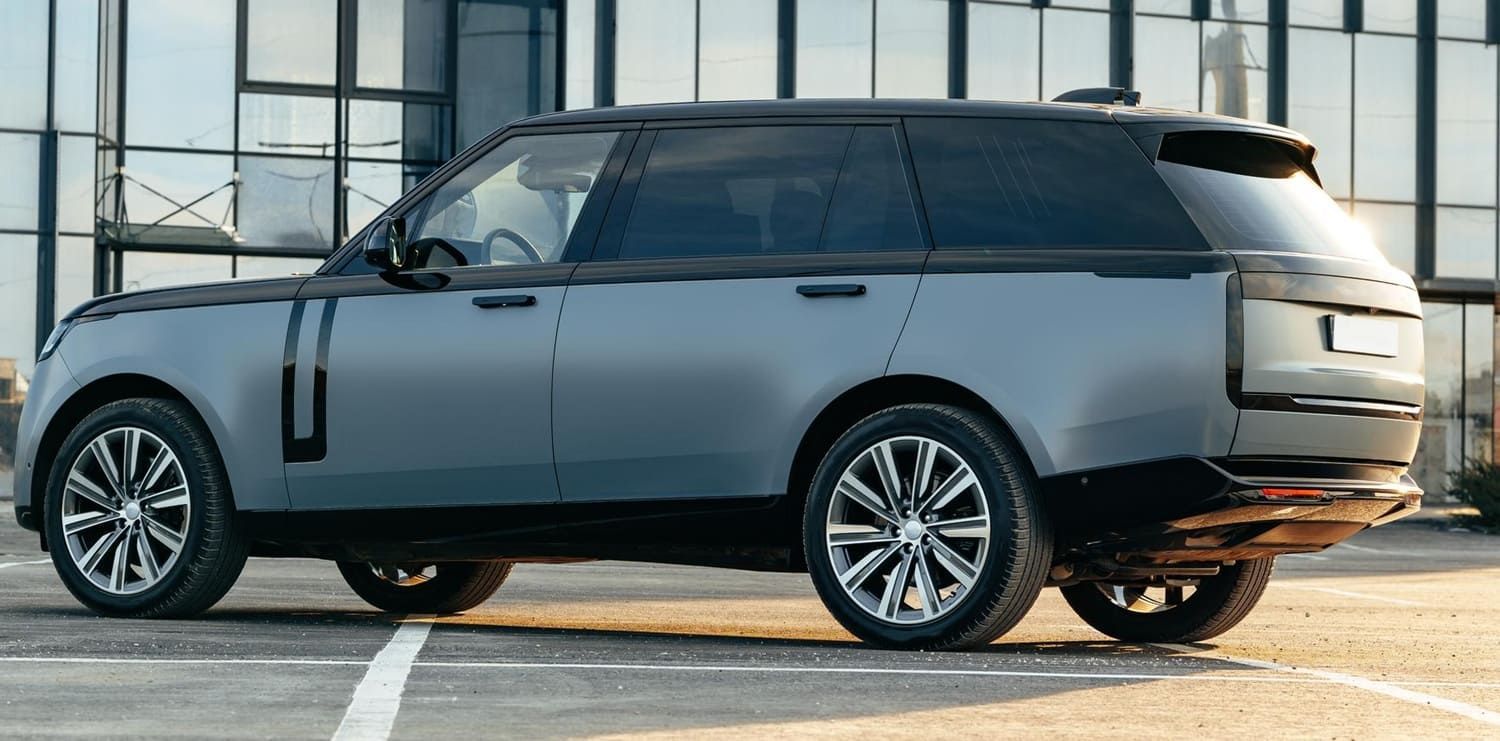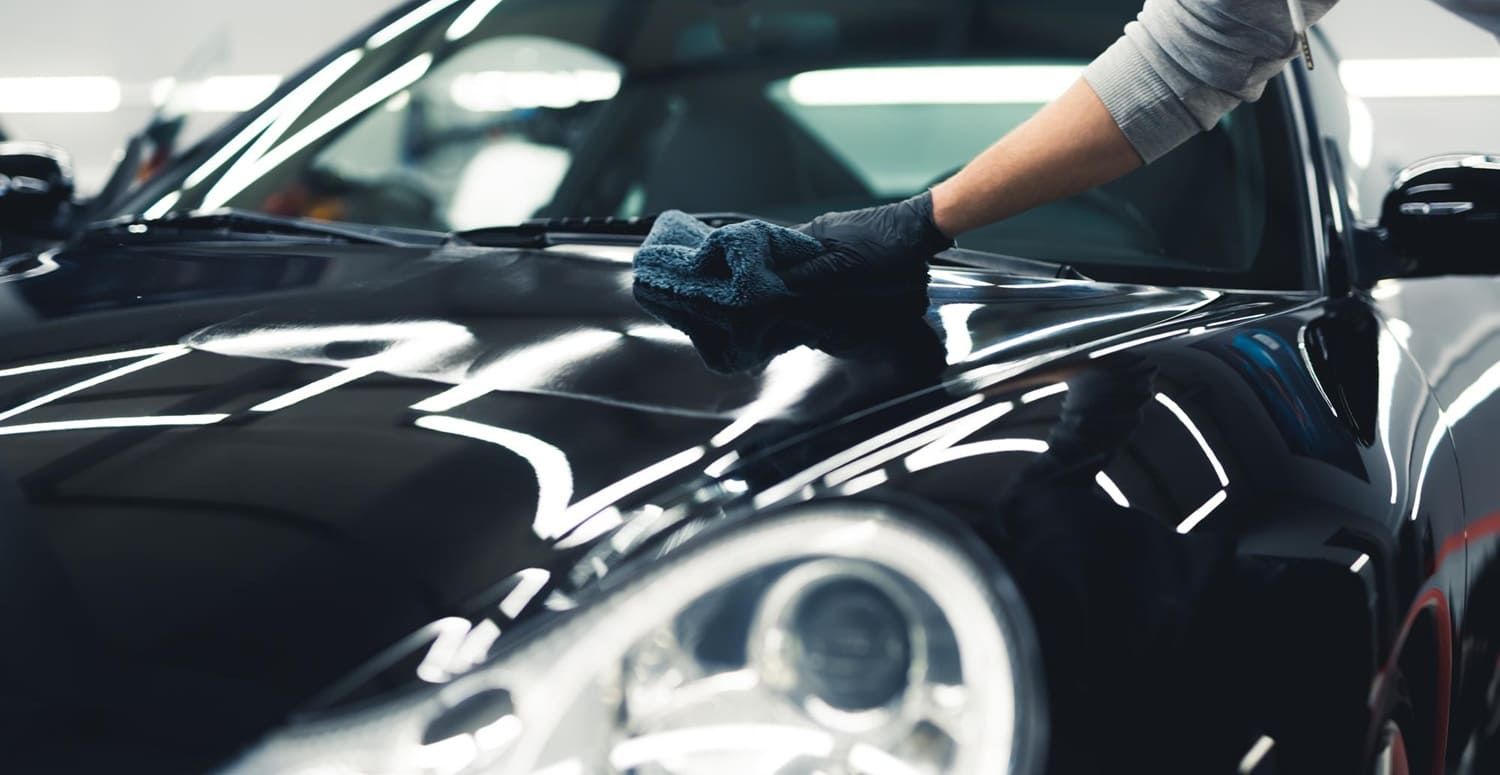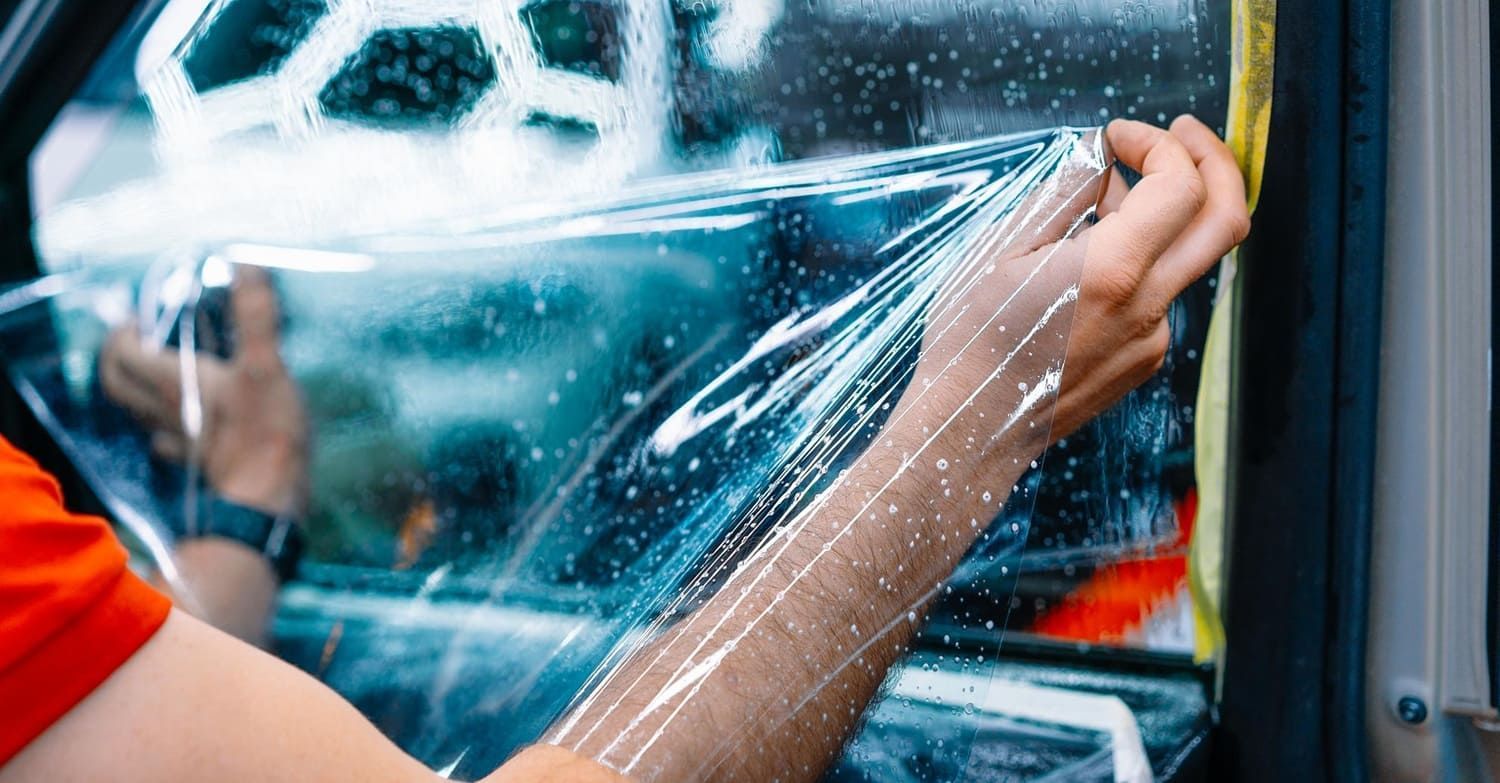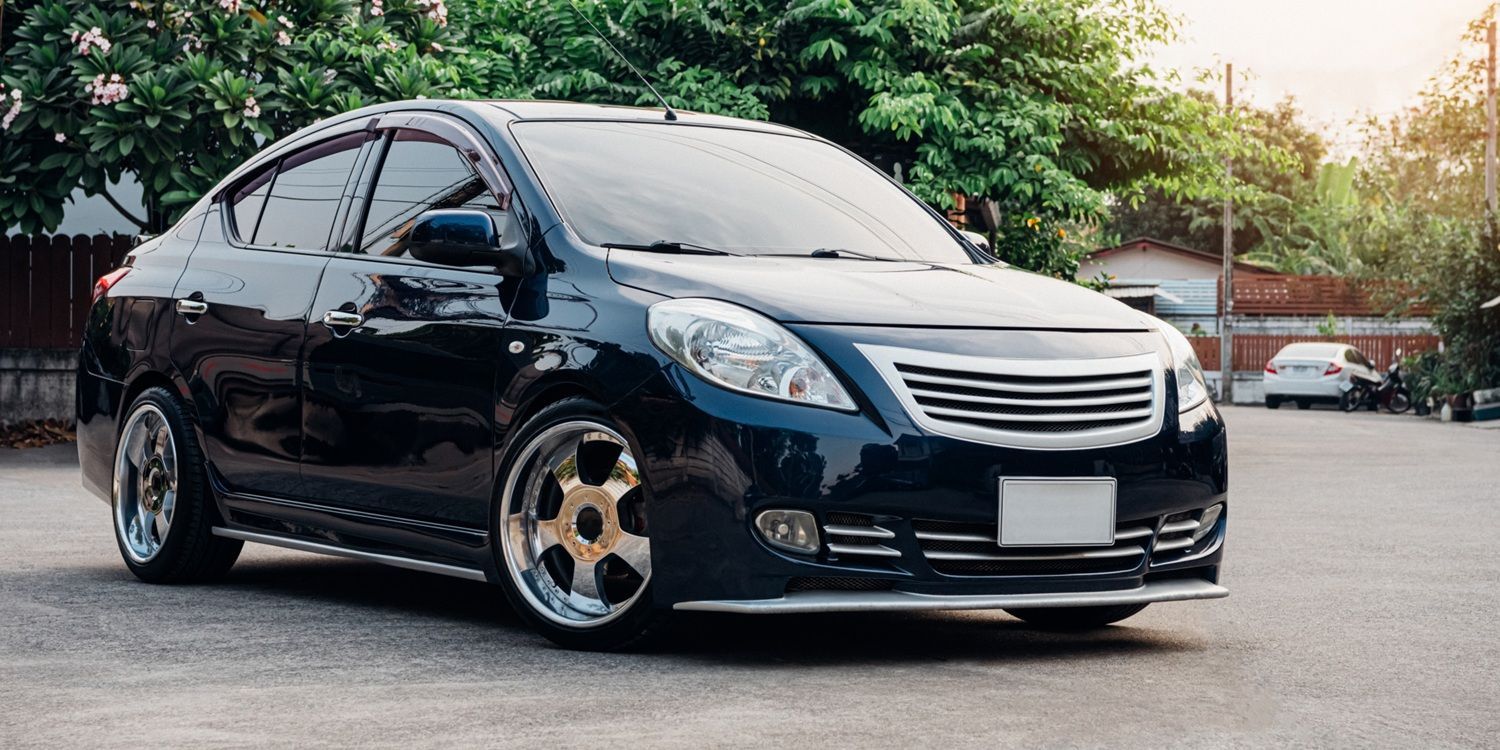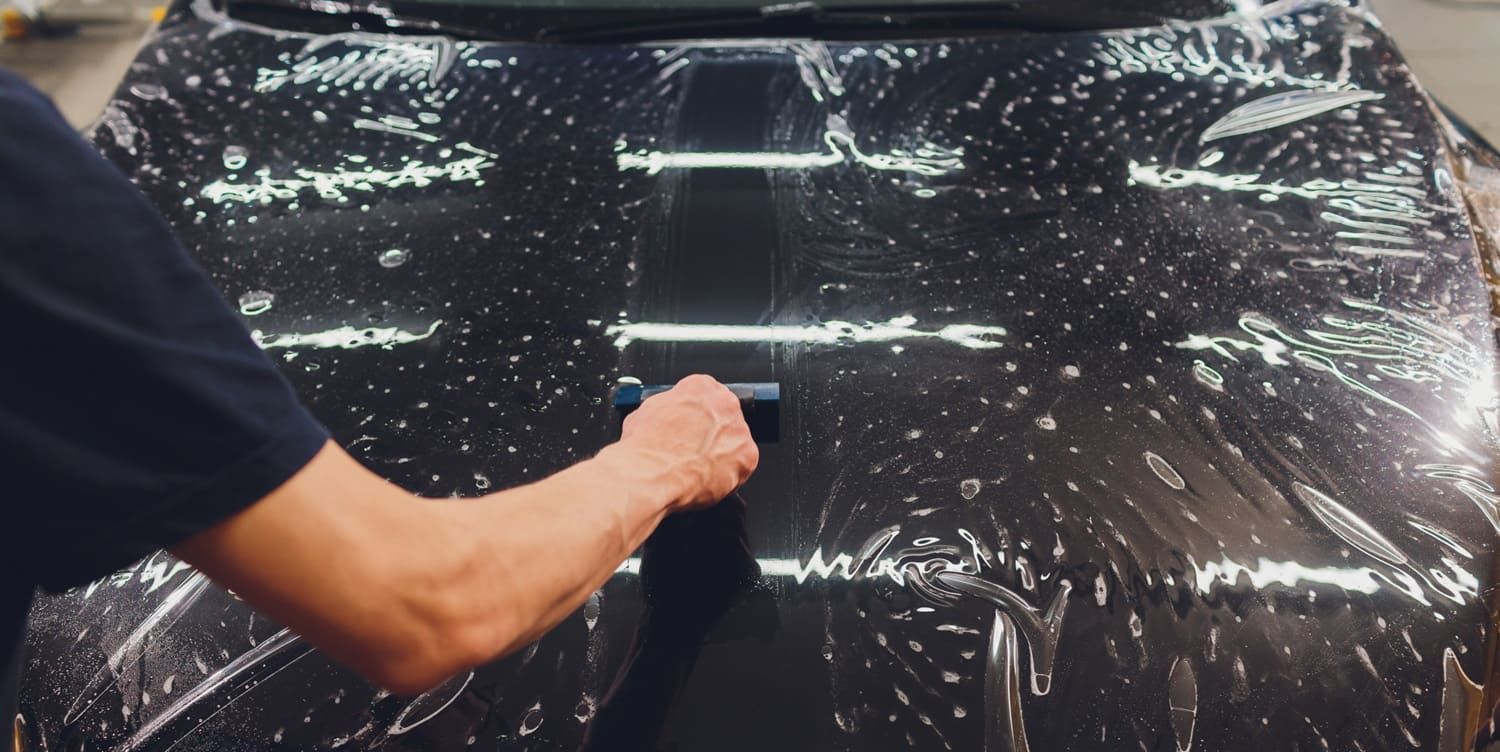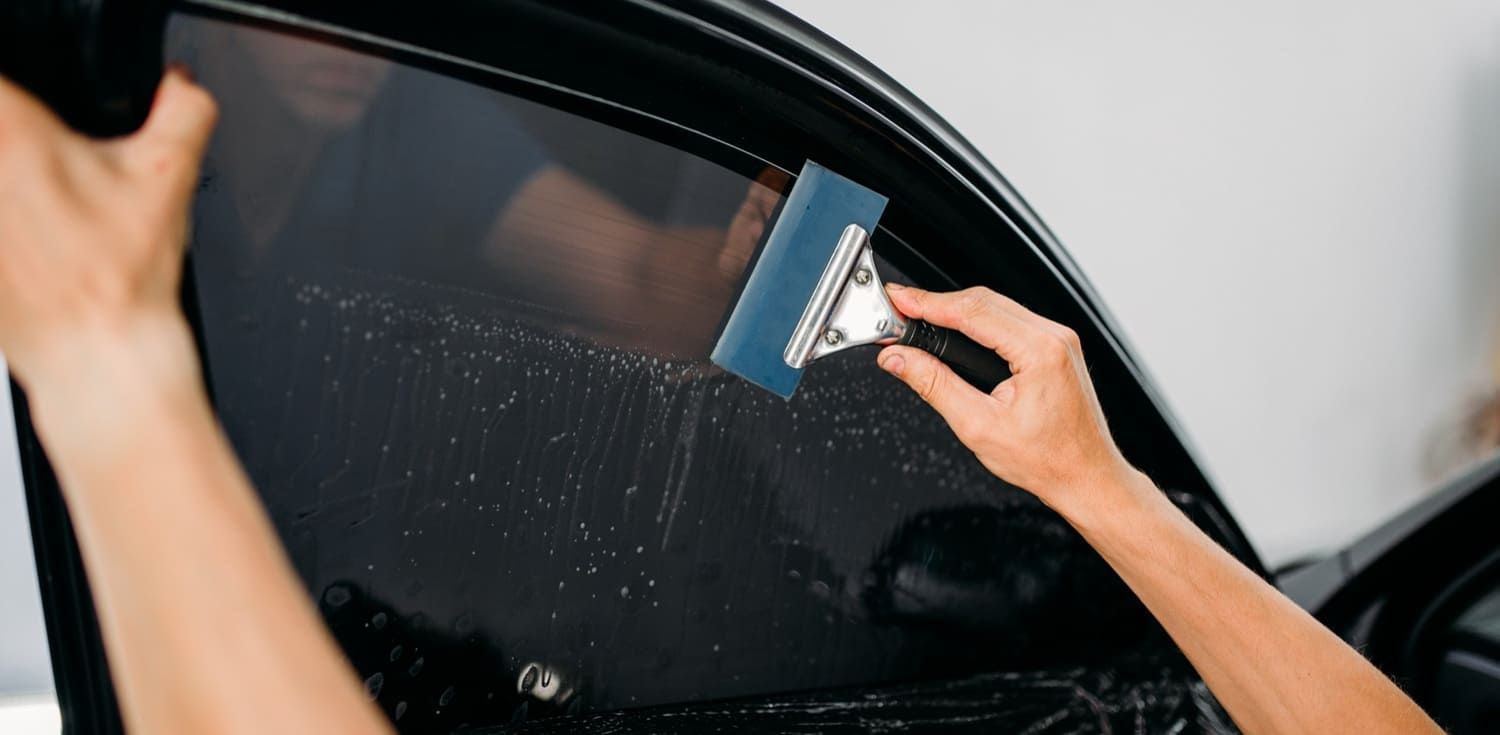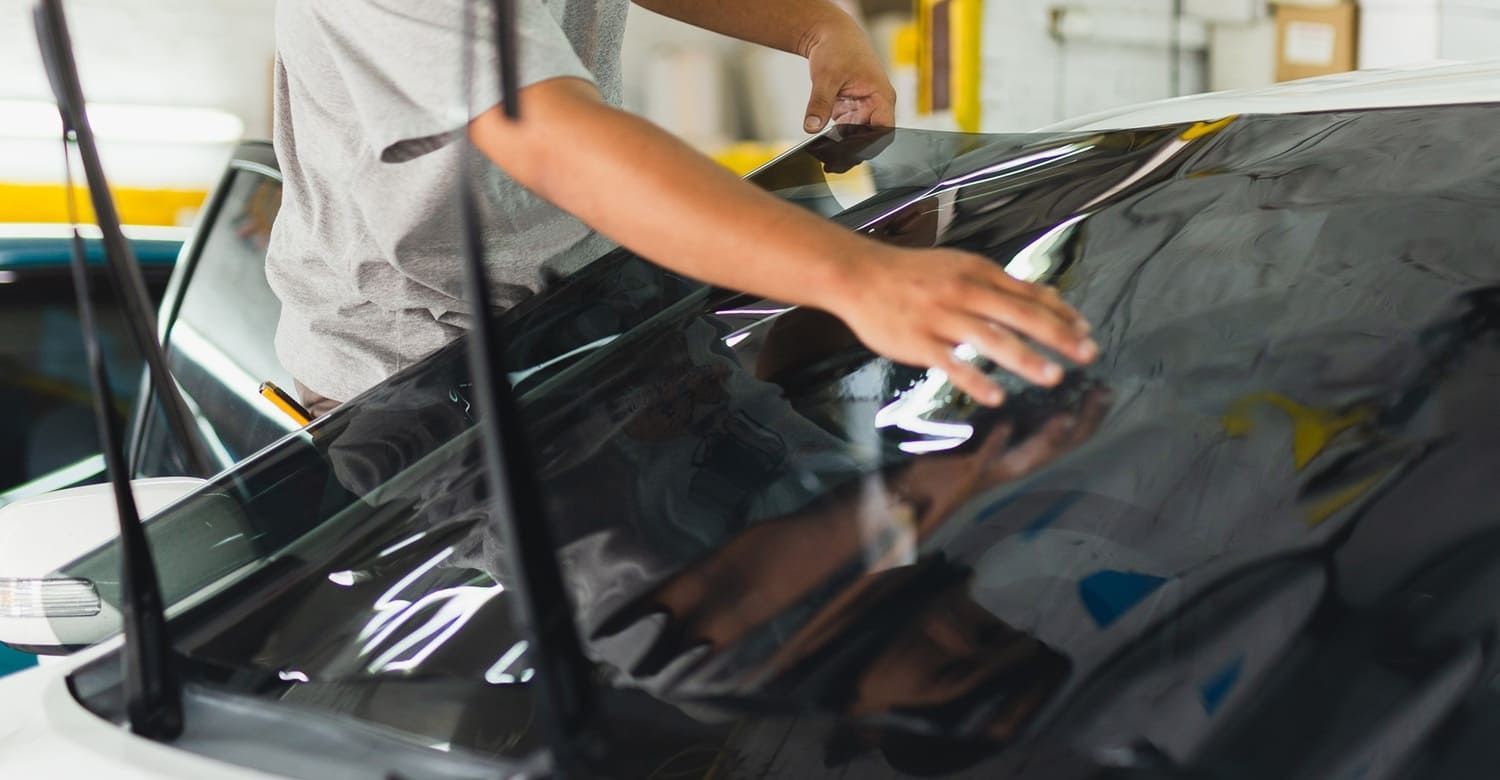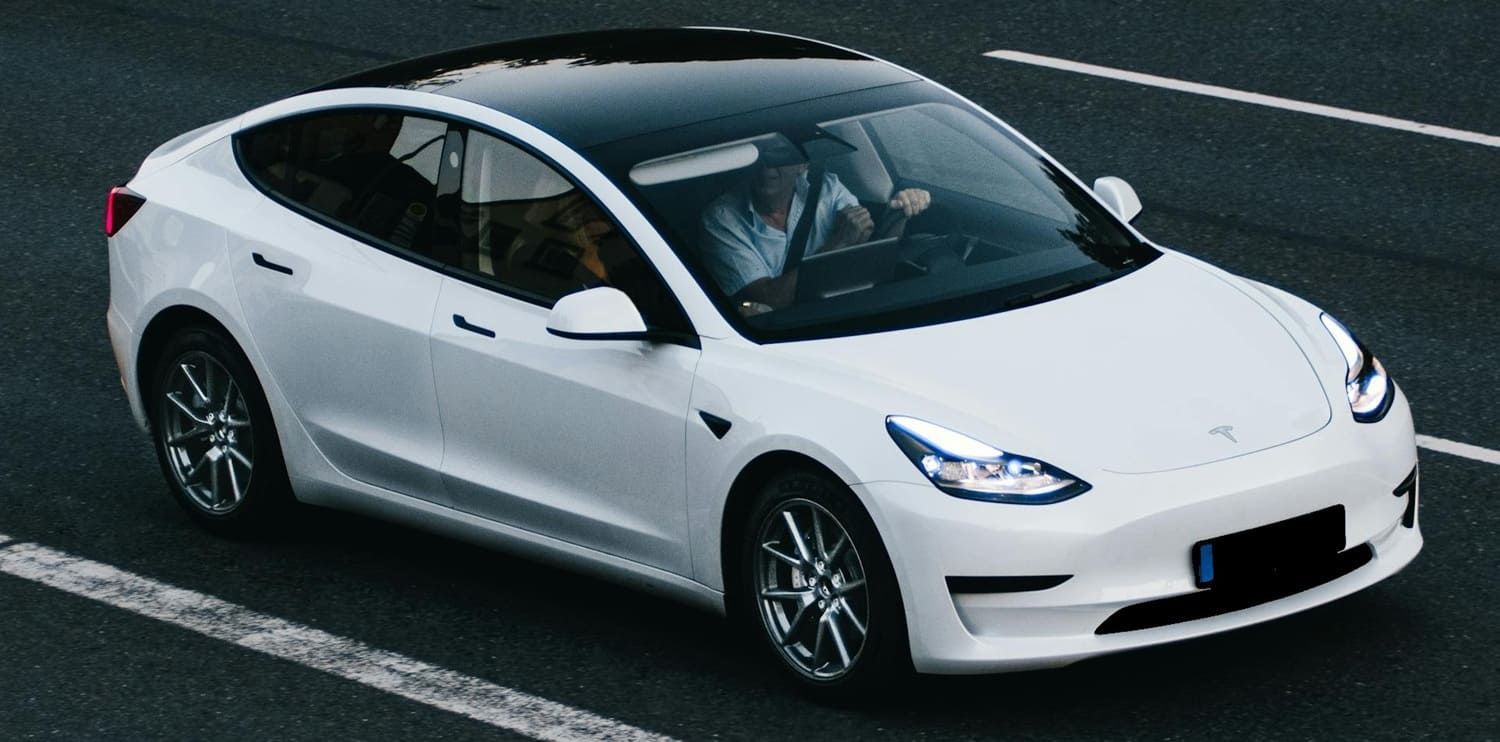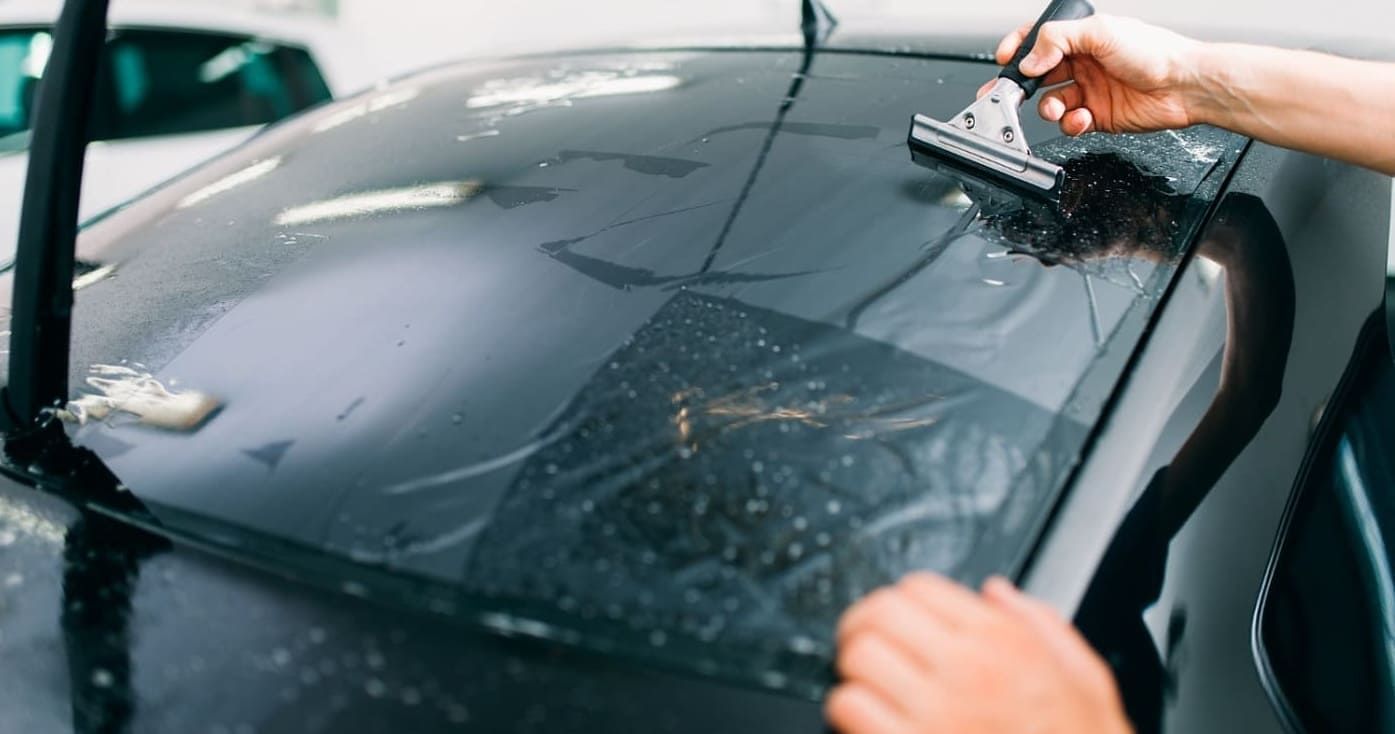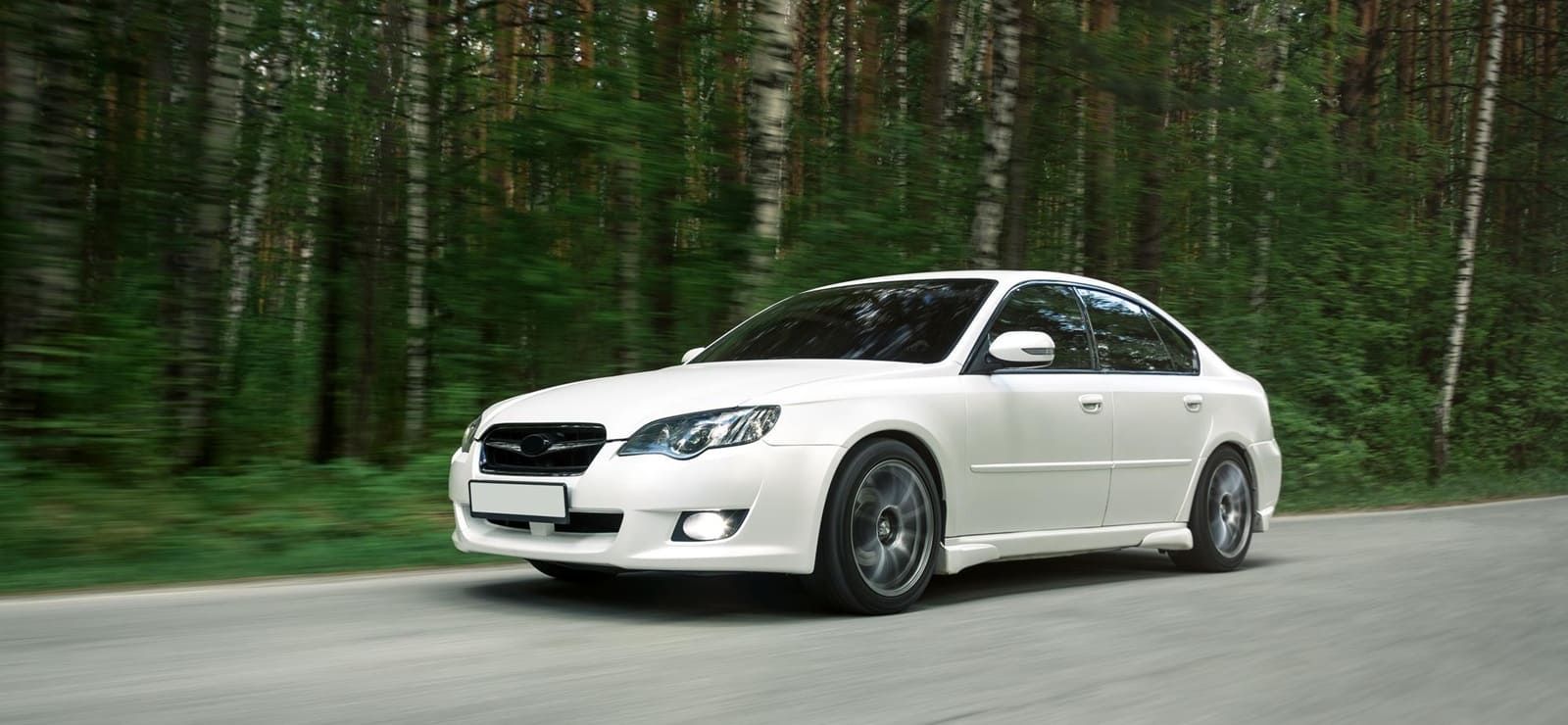Will PPF Ruin or Preserve Your Factory Paint?
Paint Protection Film (PPF) is a hot topic among car enthusiasts. It promises to protect your vehicle's factory paint. But does it really work?
Many car owners wonder if PPF is worth the investment. They want to know if it will preserve or ruin their paint.
PPF is a transparent film applied to a car's exterior. It's designed to shield the paint from scratches and chips.
Some people swear by it, claiming it keeps their cars looking new. Others worry about potential drawbacks, like changes in paint appearance.
Understanding PPF's benefits and limitations is crucial. It helps car owners make informed decisions about automotive paint protection.
This article will explore the ins and outs of PPF. We'll discuss how it works and its impact on factory paint.
We'll also compare PPF to other paint protection options. By the end, you'll know if PPF is right for your vehicle.
Stay tuned to learn more about PPF factory paint preservation.
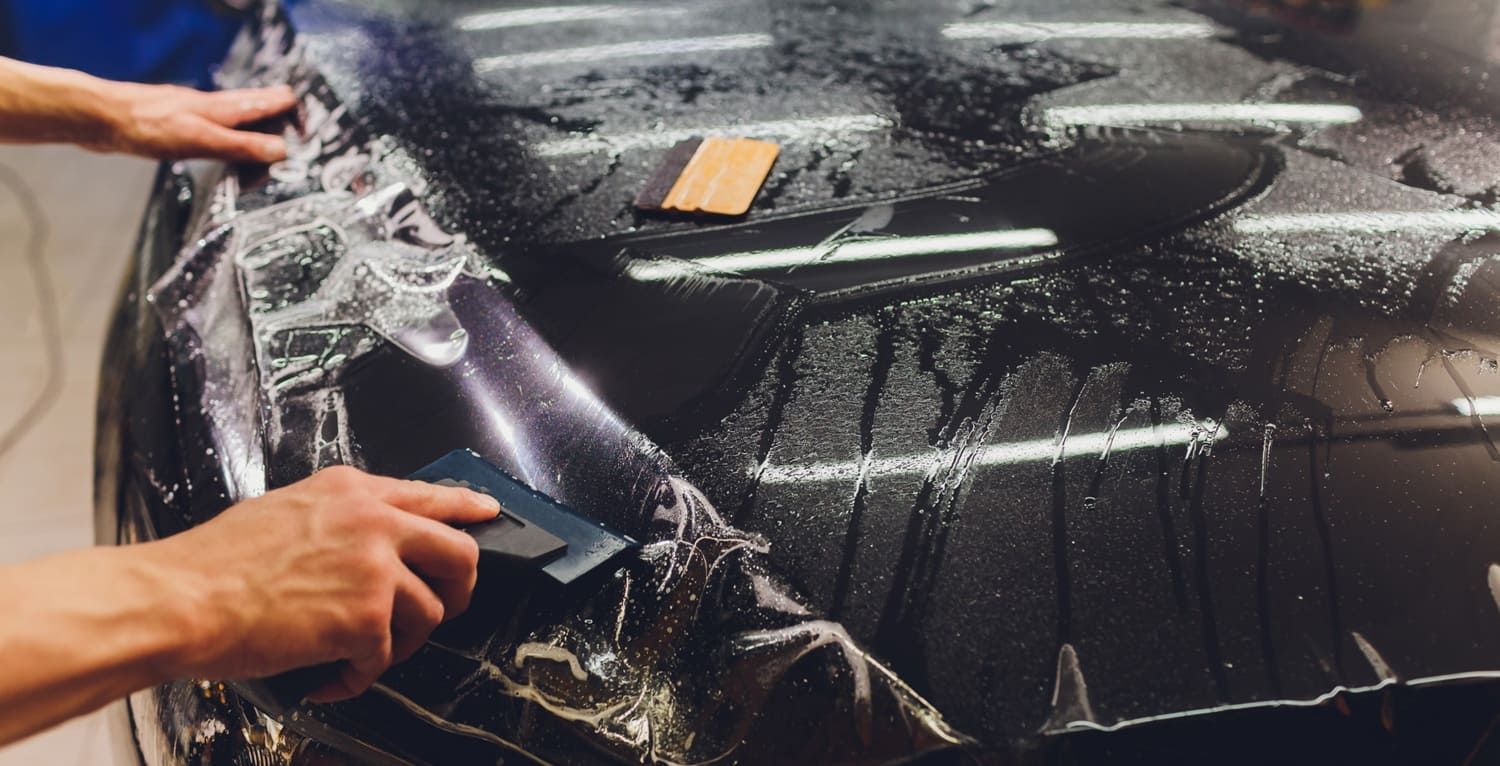
What Is Paint Protection Film (PPF)?
Paint Protection Film, or PPF, is a transparent, versatile, and durable material. It's applied to the exterior of vehicles primarily for paint preservation purposes.
PPF shields your car from environmental damage. This includes protection against scratches, chips, road debris, and harmful UV rays.
The film is made of a urethane material, known for its flexibility and resistance properties. It can be applied to the entire car or just high-risk areas.
PPF offers numerous advantages, making it a preferred choice for many. Here's what makes PPF an excellent option:
- Protects against small scratches and road debris.
- Resists fading caused by harmful sunlight.
- Self-heals minor surface damage with heat application.
- Enhances the glossy finish of the car.
- Available with hydrophobic features for easier cleaning.
PPF is a modern solution in automotive protection. It aims to keep your car looking as good as new. Knowing what it offers helps in understanding if it's the right fit for your vehicle.
How PPF Works for Factory Paint Preservation
PPF acts as a protective shield for your car's exterior. This invisible barrier prevents minor damages from affecting the factory paint underneath.
The film clings tightly to the paint surface. This tight adhesion ensures that debris and environmental contaminants are kept at bay.
PPF is also self-healing, which is one of its key features. Small scratches on the film can disappear when exposed to heat or sunlight.
The UV-resistant properties of PPF help maintain the car's paint color. This resistance reduces fading caused by prolonged sun exposure.
The film's additional benefit includes hydrophobic properties. These properties repel water and make cleaning easier, ensuring dirt slides off effortlessly.
Here's how PPF supports paint preservation:
- Blocks physical damage like scratches and chips.
- Protects against harmful UV rays that fade paint.
- Self-heals minor scratches with heat.
- Enhances durability with hydrophobic capabilities.
- Prevents buildup of contaminants like tree sap and bird droppings.
Paint Protection Film extends the life and appearance of the factory paint. It ensures that your vehicle maintains its aesthetic appeal for years to come. With PPF, your investment in your car's finish is well-guarded.
Benefits of PPF for Automotive Paint Protection
PPF offers numerous advantages when it comes to safeguarding your vehicle’s paint. One of its most significant benefits is the protection it provides against physical damage.
The film acts as a barrier, shielding the paint from chips caused by stones or road debris. This protection is crucial in maintaining the vehicle's exterior integrity.
Another advantage is PPF's ability to preserve the paint’s original quality. By preventing minor scratches, PPF helps maintain the car’s glossy finish over time.
UV resistance is another highlight of PPF. It helps prevent color fading that occurs with sun exposure, preserving the vehicle's vibrant paint.
PPF can enhance your car's resale value as well. A car with well-preserved paint is more attractive to potential buyers, often fetching a higher resale price.
The hydrophobic nature of PPF makes cleaning a breeze. Water and dirt easily slide off, keeping the vehicle looking clean with minimal effort.
PPF also offers versatility. You can apply it to the entire vehicle or just high-impact areas like the hood and mirrors.
Here's a summary of PPF's key benefits:
- Prevents chips and scratches effectively.
- Maintains the paint's shine and gloss.
- Offers UV protection to deter fading.
- Boosts resale value by preserving paint.
- Simplifies cleaning with hydrophobic properties.
- Applicable to full body or specific parts.
Overall, PPF is a valuable investment in automotive paint protection. It guarantees long-term preservation of your vehicle’s appearance. With PPF, your car stands ready to face everyday challenges on the road.
Potential Drawbacks and Myths About PPF
While PPF offers many benefits, there are potential drawbacks and myths to consider. Some believe PPF may distort the vehicle's appearance. This is often due to poor installation.
A common myth is that PPF makes paint maintenance unnecessary. This isn't true; regular upkeep remains essential even with PPF protection.
Another concern involves cost. High-quality PPF can be expensive, but it’s an investment in your vehicle's longevity.
Some car owners notice a slight orange peel effect, a minor texture change on the surface. While it might be noticeable up close, it's generally not visible from a distance.
It's also crucial to dispel the myth that PPF is permanent. Though durable, the film needs replacement eventually, just like other car protection measures.
Common myths and issues include:
- Distortion of vehicle appearance with improper installation.
- Misconception about maintenance needs being eliminated.
- Initial high cost of quality PPF.
- Possible slight texture changes on paint.
- Incorrect belief in its permanent application.
Despite these drawbacks, PPF remains a robust choice for paint protection. Most issues can be mitigated with proper installation and care. Understanding these aspects helps in making an informed decision.
PPF vs. Other Paint Protection Options
Choosing the right paint protection for your vehicle can be overwhelming. PPF is one of many options available to car owners. Each type of protection has its unique benefits and limitations.
Ceramic coatings offer a slick finish and repel water effectively. However, they don't provide the same impact resistance as PPF. Ceramic coatings are best for adding shine rather than physical protection.
Waxing is another traditional option, offering a glossy appearance but limited durability. Wax needs frequent reapplication and doesn't offer robust scratch protection like PPF does.
Sealants bridge the gap between wax and ceramic coatings. They are more durable than wax but still less protective than PPF against damage from rocks and debris.
When comparing these options, consider:
- PPF: Superior impact and scratch protection.
- Ceramic coatings: Enhance gloss and water repellence.
- Wax: Affordable and simple, needs frequent application.
- Sealants: Durable with moderate protection and shine.
Ultimately, the choice depends on your vehicle's needs and your budget. PPF offers unmatched protection, making it a popular choice for preserving factory paint.
Professional vs. DIY PPF Installation
Deciding between professional and DIY PPF installation can be challenging. Each approach has its pros and cons that car owners should consider.
Professional installation guarantees quality and precision. Experts have experience and tools to apply PPF without bubbles or misalignment. This method ensures the best result, preserving the appearance of your vehicle.
DIY installation can be more affordable. However, it requires significant patience and skill. Mistakes in application can lead to visible imperfections and reduced protection.
When considering installation methods, weigh:
- Professional installation: Costly but ensures a flawless finish.
- DIY installation: Budget-friendly, skill-dependent, and may risk imperfections.
For individuals valuing perfect results, professional installation is the recommended choice. Yet, for skilled DIY enthusiasts, self-installation could be rewarding and cost-effective. Each option suits different preferences and skill levels.
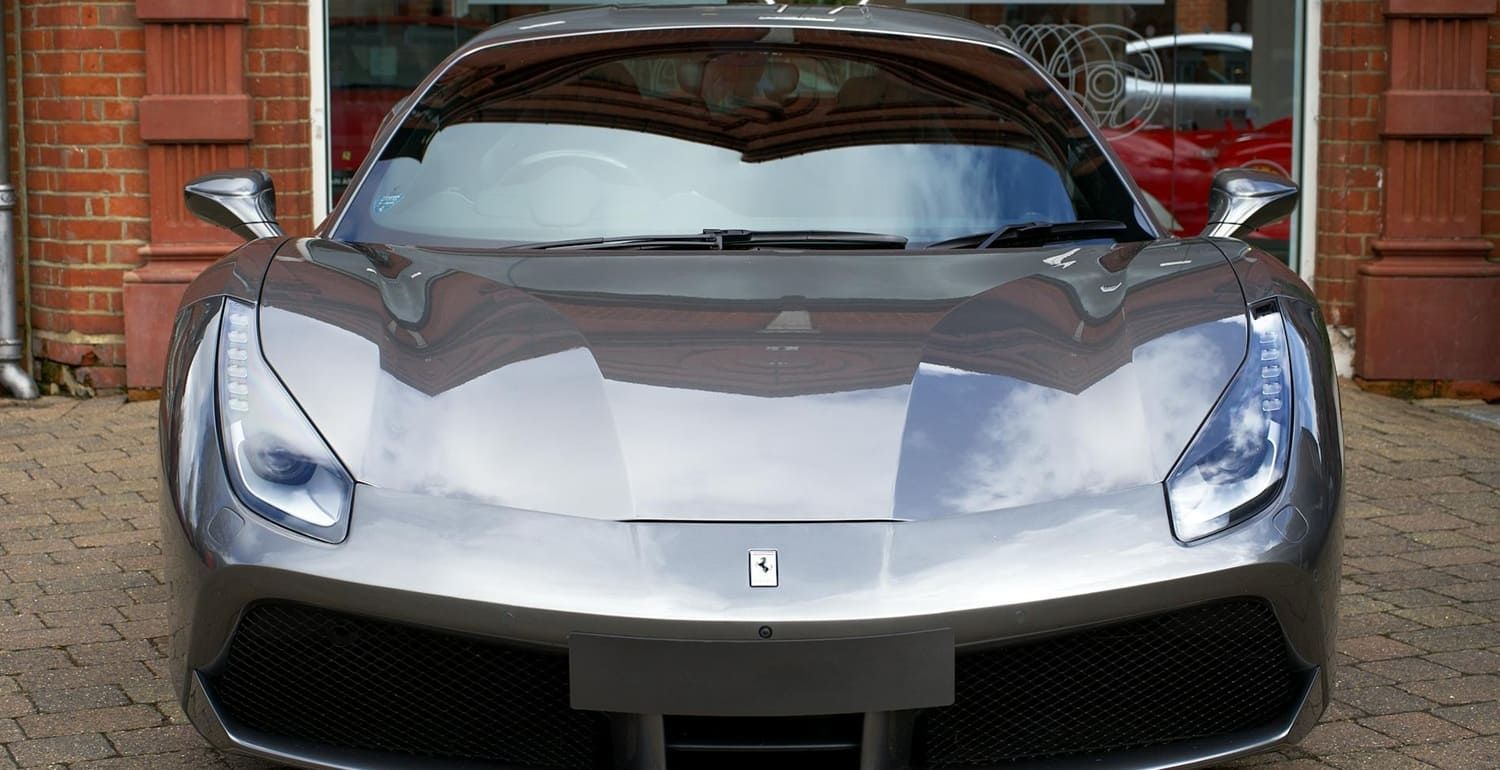
How Long Does PPF Last? Durability and Maintenance
The lifespan of Paint Protection Film (PPF) is impressive. Quality PPF can last up to 10 years with proper care. Durability depends on the film quality and environmental factors affecting your car.
Regular maintenance is key to maximizing PPF's longevity. This includes washing the car gently and avoiding abrasive chemicals. Proper care helps maintain the film's protective properties and aesthetic appeal.
PPF is designed to endure extreme conditions. It withstands UV rays, preventing paint from fading. The film’s resilience against environmental contaminants enhances its durability.
To keep PPF in top condition, consider these maintenance tips:
- Wash regularly: Use gentle soap and soft cloths.
- Avoid abrasive products: Steer clear of harsh cleaners.
- Inspect often: Check for any damage or peeling.
Ultimately, understanding the balance between PPF’s durability and required maintenance is crucial. Proper upkeep ensures your vehicle remains protected and retains its showroom shine. Owners should invest in simple, routine care to optimize their PPF investment.
Will PPF Damage or Alter Your Factory Paint?
Many car owners worry about potential damage from Paint Protection Film (PPF). Concerns arise about whether PPF might harm or alter the factory paint. However, when applied correctly, PPF poses no threat.
Professional installation is crucial to prevent issues like bubbling or misalignment. These concerns are typically associated with improper application. A skilled installer ensures the film adheres smoothly and securely.
PPF is designed to preserve, not alter, the original paint. It acts as a transparent shield against minor scratches and chips. Moreover, PPF protects against harmful UV rays that can fade paint.
Some minor changes in appearance may occur, though. The film might add a slight gloss or a minor texture change. These are generally subtle and can enhance the vehicle's look.
In summary, PPF, when properly installed, preserves your car's factory finish without causing damage. It's an effective and safe option for long-term paint protection.
Tips for Maximizing PPF Factory Paint Preservation
To get the most out of Paint Protection Film, maintain it properly. Regular care will extend its lifespan and effectiveness. Here are some effective tips to maximize PPF performance.
Firstly, wash your vehicle regularly. Use a gentle, PPF-safe car shampoo and a soft microfiber cloth. This will prevent contaminants from embedding in the film.
Inspect the film periodically. Look for signs of wear, like peeling or bubbling. Early detection can prevent further damage, ensuring consistent protection.
Avoid harsh chemicals or abrasive materials. These can deteriorate the film's integrity. Choose products specifically designed for PPF maintenance.
Here's a quick checklist for PPF maintenance:
- Wash regularly with gentle products
- Inspect for damage frequently
- Avoid harsh chemicals
- Protect from harsh environmental exposures
By following these tips, you can ensure PPF longevity, optimizing factory paint protection for years to come.
Cost Considerations: Is PPF Worth the Investment?
Deciding to install Paint Protection Film involves evaluating the costs against the benefits. PPF offers unique advantages for preserving vehicle paint, but it comes with an associated price.
The cost of PPF varies widely. Factors such as vehicle size, film quality, and installation complexity affect pricing. It's essential to consider these before making a decision.
However, PPF is often considered a worthwhile investment. It protects the car's finish and can increase resale value. Over time, this could offset the initial expenditure.
Consider these factors when thinking about PPF investment:
- Vehicle size and type
- Quality of the film used
- Professional installation costs
- Potential increase in vehicle resale value
Evaluate if the upfront cost meets your long-term automotive protection goals. Ultimately, PPF could save both time and money in paint repairs.
Frequently Asked Questions About PPF and Factory Paint
Understanding how PPF interacts with factory paint can ease your concerns. Here are answers to common questions about PPF.
Will PPF change my car's color?
PPF is transparent and does not alter the original paint color. It may enhance gloss slightly.
How is PPF different from wax or ceramic coatings?
PPF is a physical barrier, whereas wax and ceramics are liquid applications that offer different protection levels.
Does PPF ruin factory paint?
No. Quality PPF is safe and designed to protect paint.
Will PPF preserve my car’s factory finish?
Yes. It shields against chips, scratches, and UV damage.
Can PPF be removed without harming paint?
Yes. When removed correctly, it leaves the paint unharmed.
Does PPF make paint look better?
Yes. It enhances gloss and keeps paint looking new.
How long will PPF protect factory paint?
Most films last 7 to 10 years with proper care.
Is PPF better than waxing for protection?
Yes. It provides stronger, longer-lasting defense against damage.
Can PPF protect against rock chips and road debris?
Yes. It absorbs impacts that would normally chip paint.
Is PPF worth it for preserving resale value?
Yes. Well-protected factory paint helps maintain higher resale value.
Conclusion: Should You Choose PPF for Your Vehicle?
Choosing PPF for your vehicle is a decision that can protect your car's appearance long-term. With Top Line Tint and Audio in Cape Coral, FL, the premier PPF installers near you, you’ll get expert installation and industry-leading products designed to keep your vehicle looking its best for years to come. With the benefits of paint protection, PPF is a worthwhile investment for many car owners.
PPF guards against environmental damage while maintaining the factory finish. This makes it a top choice for those who value their vehicle’s appearance and want reliable protection that preserves both beauty and value.
Consider your usage and needs carefully. If preserving the original paint is your priority, PPF installed by Top Line Tint and Audio offers unmatched defense against wear and tear while providing peace of mind.
Contact Top Line Tint and Audio in Cape Coral, FL today for your free estimate and experience the long-term benefits of professional paint protection film installation.

